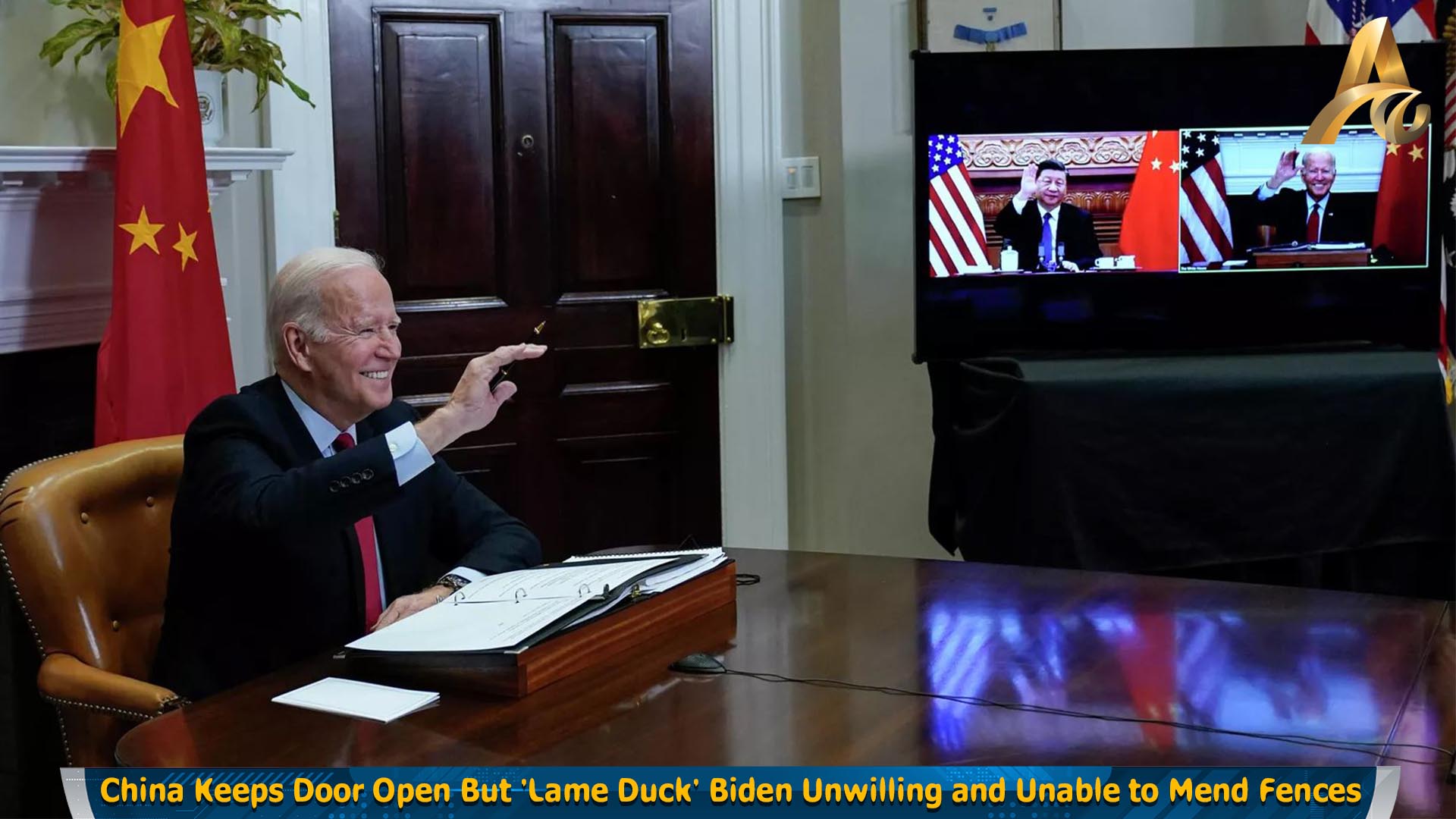INTERNATIONAL: As tensions are continuing to simmer between Washington and Beijing, Chinese President Xi Jinping has signaled that the People's Republic is willing to work with the U.S., to respect each other, coexist peacefully and achieve win-win cooperation. How will Joe Biden respond?
"Obviously, there is going to be an economic downturn, so both countries are going to be struggling economically. China is the world's largest exporter, and the US is the world's largest importer. So if there is a down economy or if there are struggles, the two countries need to work together to improve both economies rather than engage in the current status of economic decoupling strategy that is being used by Washington, D.C. right now," said Thomas W. Pauken II, the author of "U.S. vs China: From Trade War to Reciprocal Deal," a consultant on Asia-Pacific affairs and a geopolitical commentator.
The U.S. has been increasing pressure on the People's Republic of China (PRC) for at least four years now by introducing tariffs, blocking investment, restricting exports, rolling out visa limits and taking other measures which target its largest Asian trade partner. At the same time, Washington is beefing up its military presence in the Asia-Pacific region, stepping up freedom of navigation operations (FONOPs) in the South China Sea and closing ranks with Taiwan – an island seen by Beijing as an inalienable part of the PRC.
The latest Sino-American row to have reverberated through the region was triggered by House Speaker Nancy Pelosi's visit to Taipei in August 2022. The controversial trip was followed by the People's Liberation Army's drills around the island.
Besides stating on multiple occasions that the U.S. is ready to "defend" Taiwan militarily, President Joe Biden also singled out the PRC as "America’s most consequential geopolitical challenge" in the nation's National Security Strategy (NSS), released earlier this month.
Another blow to U.S.-China ties has been recently dealt by the U.S. Bureau of Industry and Security (BIS) which imposed sweeping limits on the export of advanced semiconductors, chip-making equipment, and supercomputer components to China. The U.S. mainstream press hailed the move as "a ruthless expression of American clout" and "the broadest export controls issued in a decade." The measure is aimed at crippling China's ability to develop high-end semiconductors and holding back the PRC's economic progress.
At the same time, however, the White House continues to claim that it still adheres to the One China policy and maintains working relations with Beijing. Thus, on Wednesday, 26 October, Biden told his top military advisers that the U.S. does not seek conflict with China, adding that Chinese President Xi Jinping knows this.
Beijing is keeping the door open: the Chinese Foreign Ministry has recently called on the US to stop spreading the outdated theory of a Chinese threat and urged that China be seen as a partner for mutually beneficial cooperation. Chinese President Xi Jinping specifically underscored that the PRC is willing to "find the right way for China and the U.S. to get along in the new era, which will not only benefit both countries, but also the world," in a letter to the National Committee on U.S.-China Relations.
To complicate matters further, the American Democrats are bracing for a potential defeat in the upcoming November midterms. If the Republicans take one or two chambers of the U.S. Congress they are likely to pursue an anti-China agenda, according to Pauken. House Minority Leader Kevin McCarthy has repeatedly blamed Biden for being "too soft" on Beijing. In 2020, McCarthy promoted the China Task Force to crack down on Beijing.
"[Republicans] will probably be very concerned about trying to improve ties between U.S. and China. And so Biden's efforts will basically not succeed in any form or manner," Pauken assumed.
Nonetheless, the Democratic Party's recent militaristic "neocon" approach towards the PRC is far worse than the Republican Party's hardball attitude, argued the Asia Pacific expert.
(SOURCE: Sputnik News)























